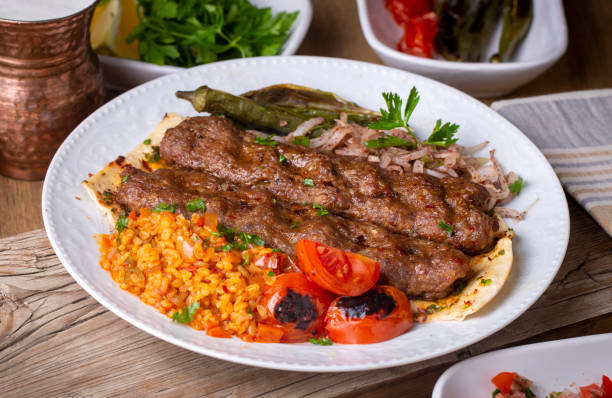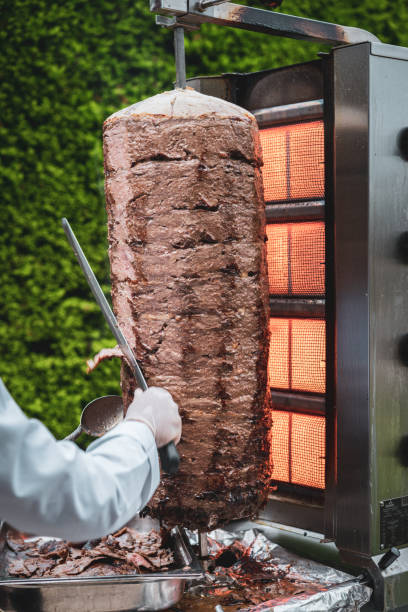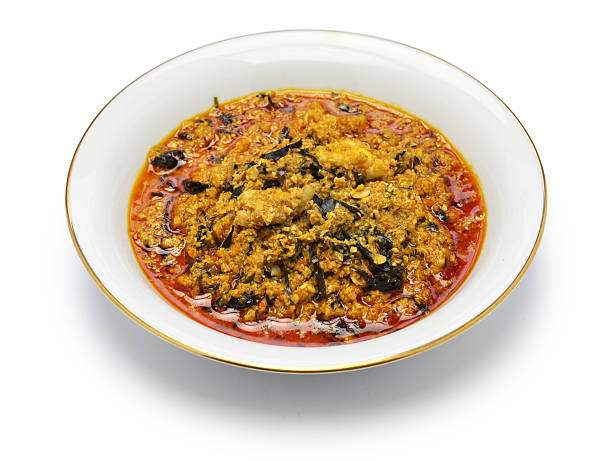Kebabs, a beloved dish enjoyed across cultures and cuisines, offer a delectable blend of savory flavors, tender meats, vibrant vegetables, and aromatic spices. Whether grilled, roasted, or skewered, kebabs are celebrated for their versatility, convenience, and culinary appeal. Beyond their mouthwatering taste, kebabs provide a range of nutritional benefits derived from their balanced composition of protein, vegetables, and spices, making them a wholesome and satisfying meal option for individuals seeking both flavor and nourishment.

One of the key nutritional components of kebabs is their high protein content, primarily derived from the meat or protein source used in their preparation. Whether made with beef, chicken, lamb, fish, tofu, or shrimp, kebabs offer a rich source of high-quality protein. Protein is essential for muscle repair and growth, immune function, and hormone production. Including protein-rich foods like kebabs in one’s diet supports satiety, promotes muscle health, and aids in weight management. Additionally, protein helps regulate blood sugar levels and provides sustained energy throughout the day.

Moreover, kebabs are typically served with a variety of vegetables, such as bell peppers, onions, tomatoes, zucchini, and mushrooms, which add essential vitamins, minerals, and dietary fiber to the dish. Vegetables provide vitamins such as vitamin C, vitamin A, and vitamin K, as well as minerals like potassium and magnesium. These nutrients support overall health and well-being, contributing to immune function, bone health, and metabolism. Dietary fiber aids in digestion, promotes regular bowel movements, and helps regulate blood sugar levels. Including fiber-rich vegetables in kebabs supports gut health and may reduce the risk of digestive disorders such as constipation and diverticulitis.

Additionally, kebabs can be seasoned with a variety of herbs, spices, and marinades, which not only enhance the flavor profile but also offer potential health benefits. Ingredients like garlic, ginger, turmeric, and cumin contain bioactive compounds with antioxidant, anti-inflammatory, and antimicrobial properties. These compounds help reduce oxidative stress in the body, combat inflammation, and may lower the risk of chronic diseases such as heart disease, cancer, and diabetes. Herbs and spices also add depth of flavor to kebabs, making them a delicious and satisfying meal option.

Furthermore, kebabs are often cooked on a grill or skewered over an open flame, which allows excess fat to drip away during cooking. This cooking method helps reduce the overall calorie and fat content of the dish compared to frying or sautéing. Grilling also imparts a smoky flavor to the kebabs, enhancing their taste and appeal.

In conclusion, kebabs offer a flavorful and nutritious dish that can be enjoyed as part of a balanced diet. With their combination of protein-rich meats or protein sources, fiber-rich vegetables, and flavorful seasonings, kebabs provide essential nutrients that support overall health and well-being. By including a variety of ingredients, choosing lean protein sources, and minimizing added sugars and sodium, kebabs can be enjoyed as a delicious and nutritious meal option for individuals of all ages.




